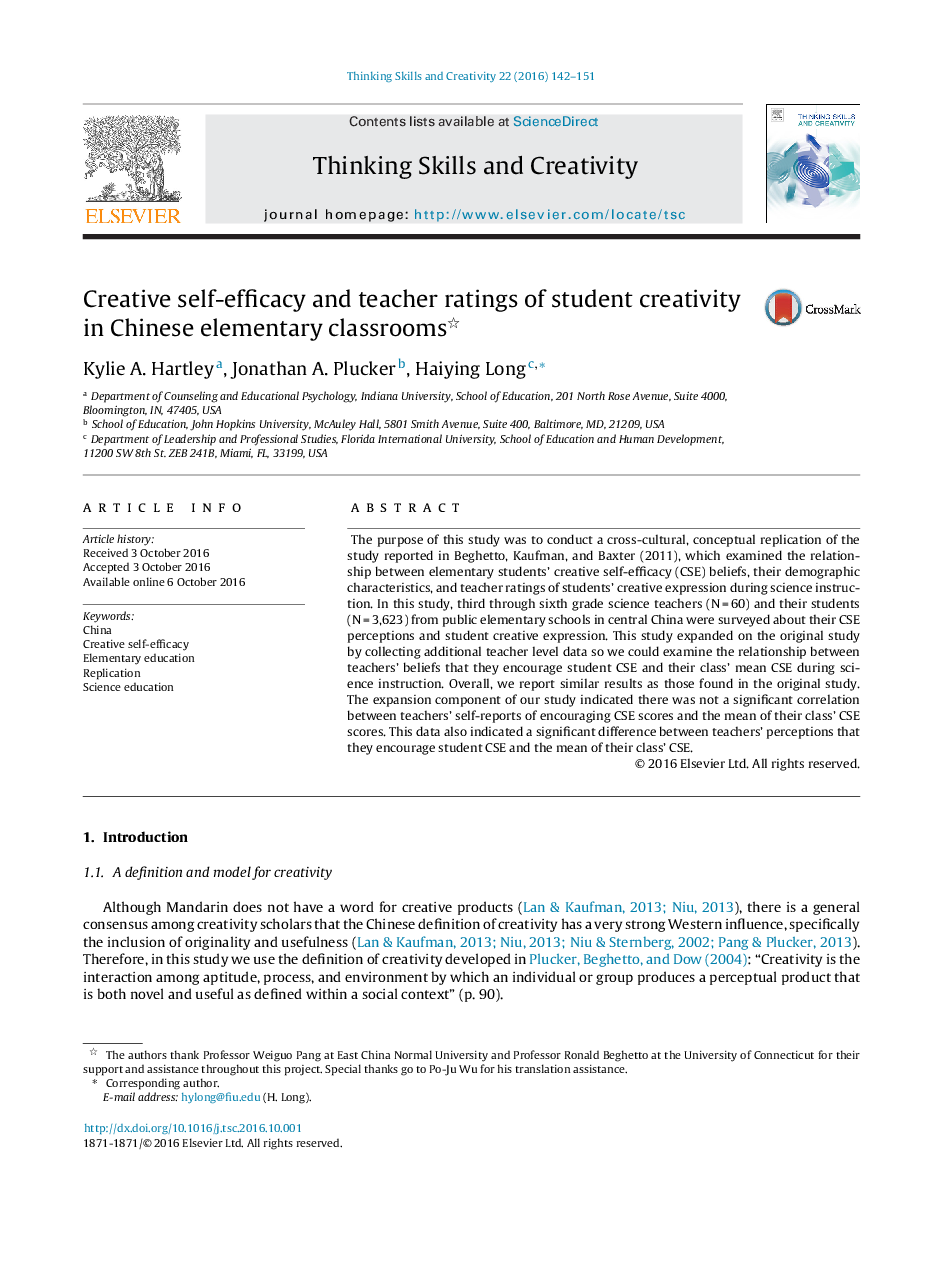| Article ID | Journal | Published Year | Pages | File Type |
|---|---|---|---|---|
| 4941900 | Thinking Skills and Creativity | 2016 | 10 Pages |
Abstract
The purpose of this study was to conduct a cross-cultural, conceptual replication of the study reported in Beghetto, Kaufman, and Baxter (2011), which examined the relationship between elementary students' creative self-efficacy (CSE) beliefs, their demographic characteristics, and teacher ratings of students' creative expression during science instruction. In this study, third through sixth grade science teachers (NÂ =Â 60) and their students (NÂ =Â 3,623) from public elementary schools in central China were surveyed about their CSE perceptions and student creative expression. This study expanded on the original study by collecting additional teacher level data so we could examine the relationship between teachers' beliefs that they encourage student CSE and their class' mean CSE during science instruction. Overall, we report similar results as those found in the original study. The expansion component of our study indicated there was not a significant correlation between teachers' self-reports of encouraging CSE scores and the mean of their class' CSE scores. This data also indicated a significant difference between teachers' perceptions that they encourage student CSE and the mean of their class' CSE.
Related Topics
Social Sciences and Humanities
Psychology
Developmental and Educational Psychology
Authors
Kylie A. Hartley, Jonathan A. Plucker, Haiying Long,
